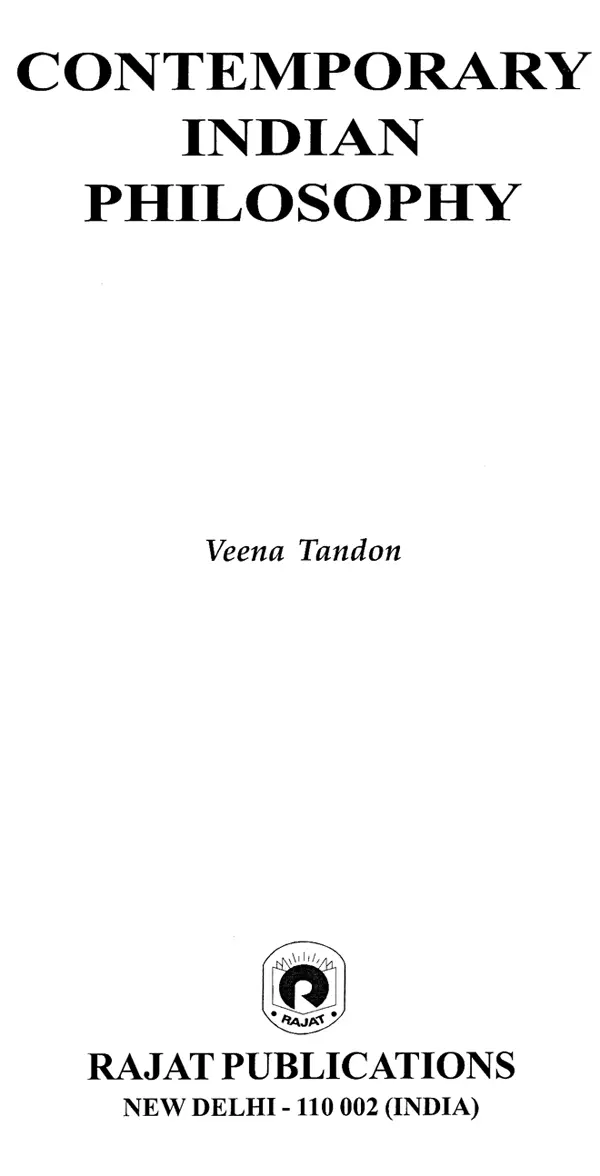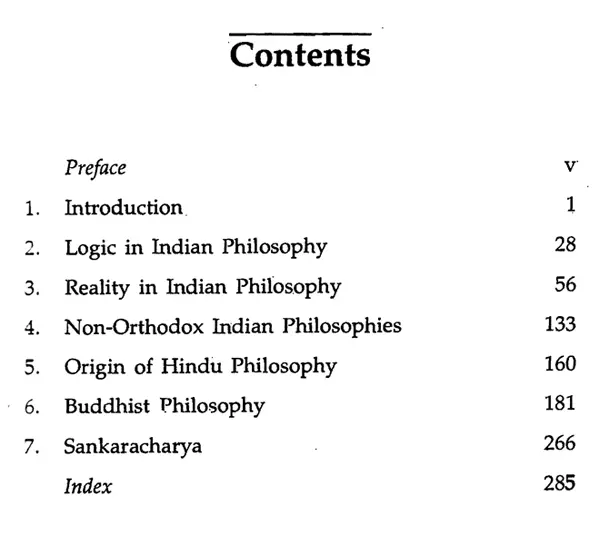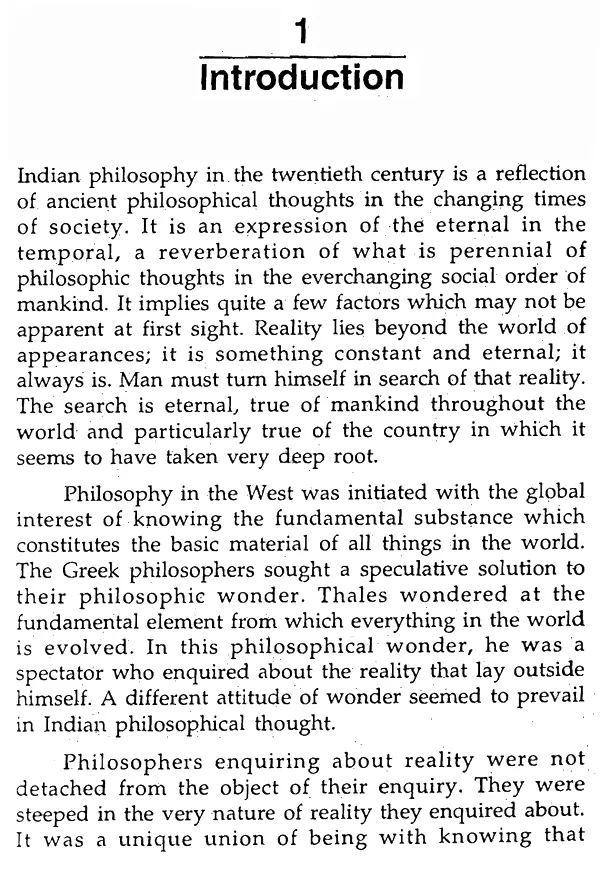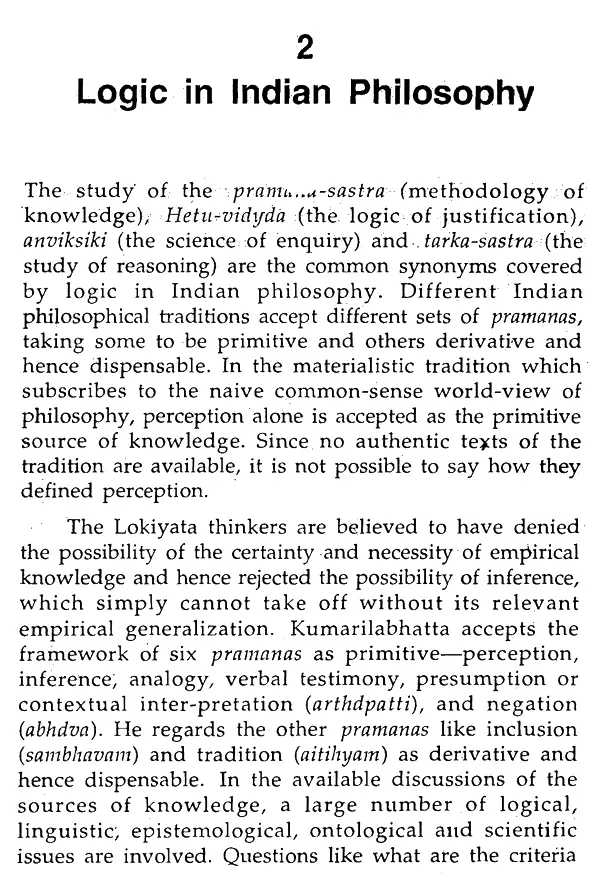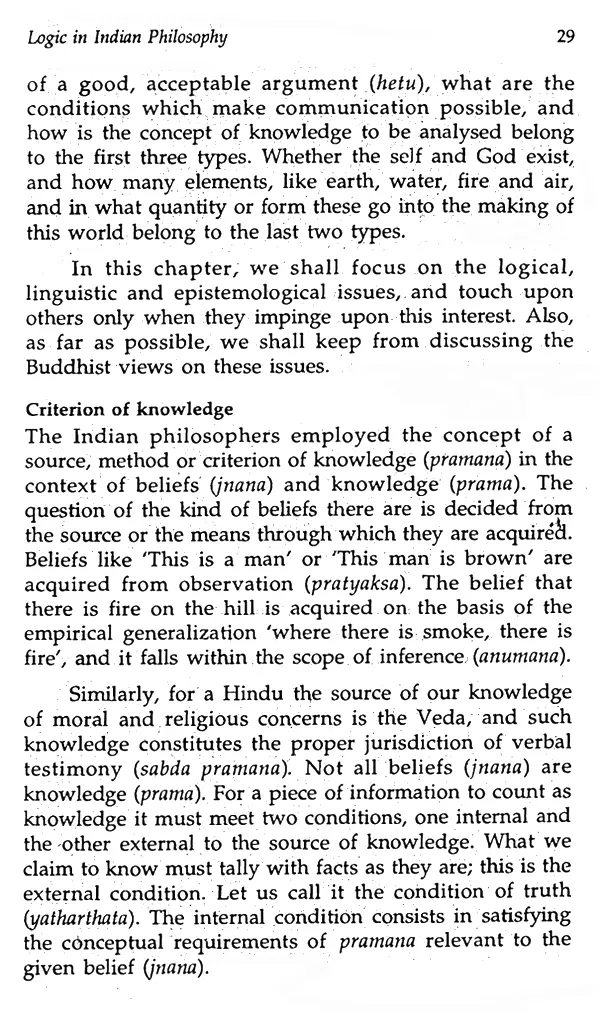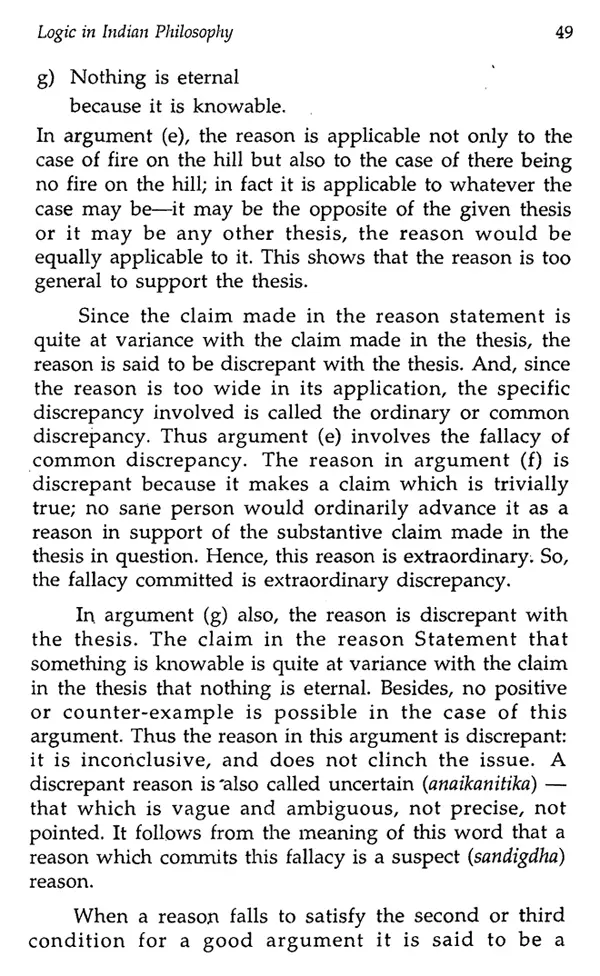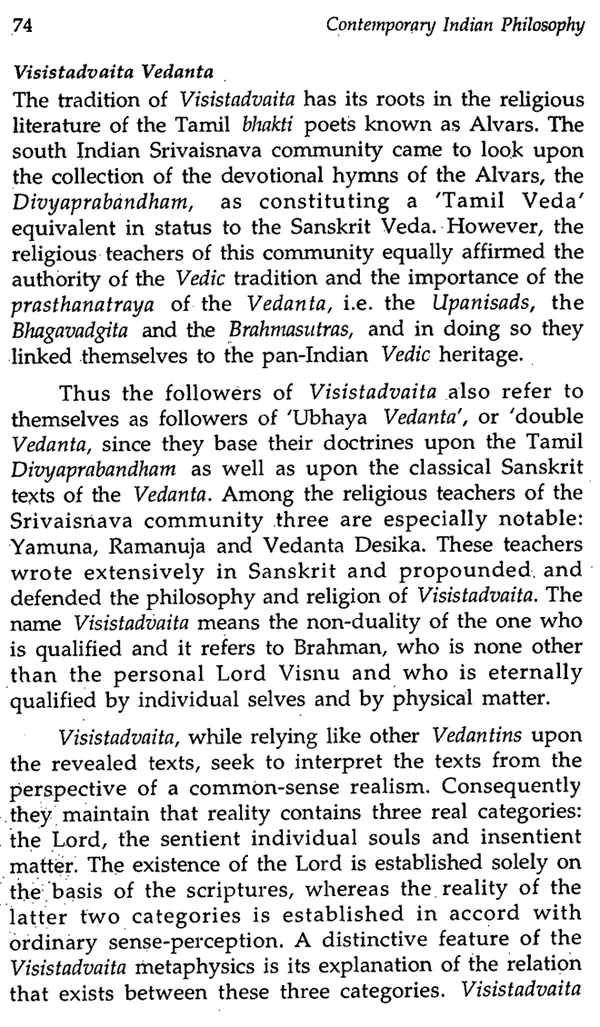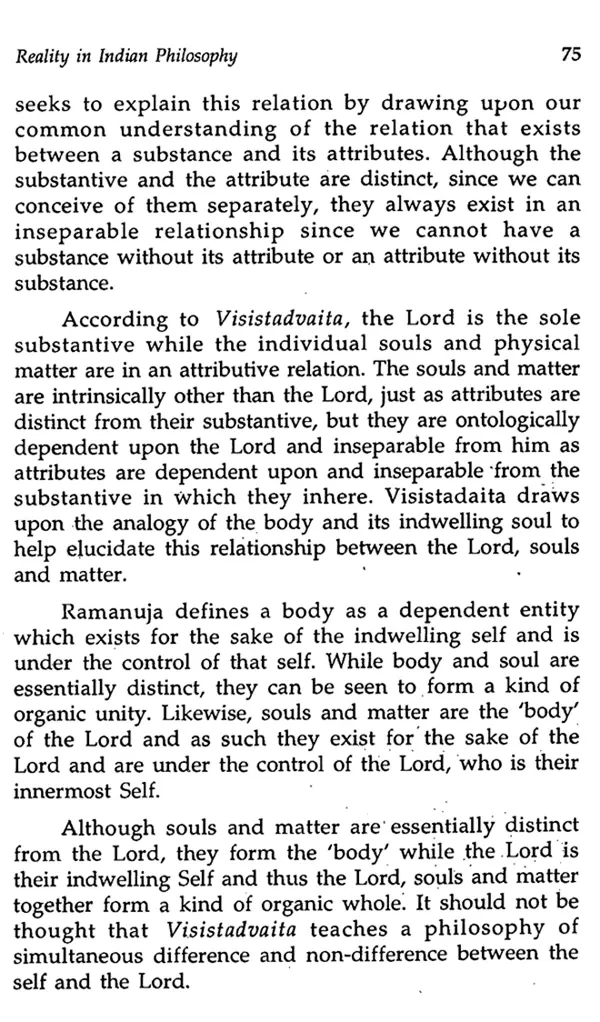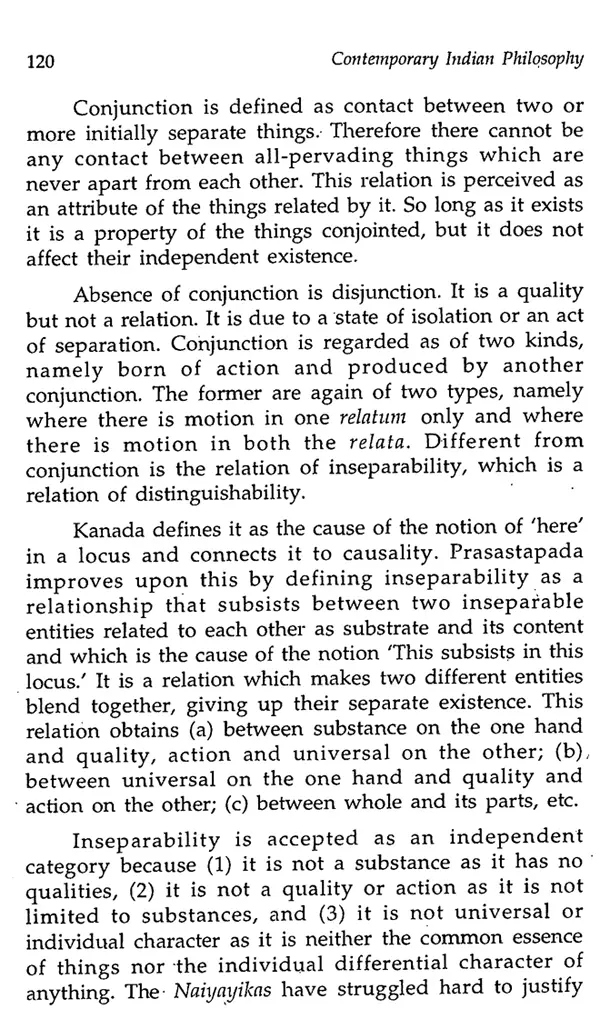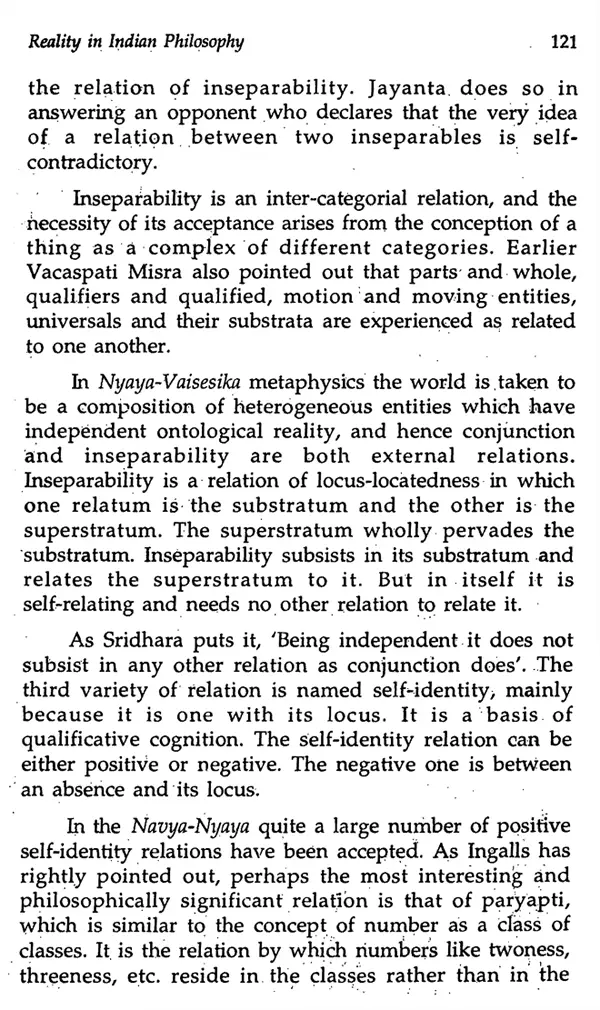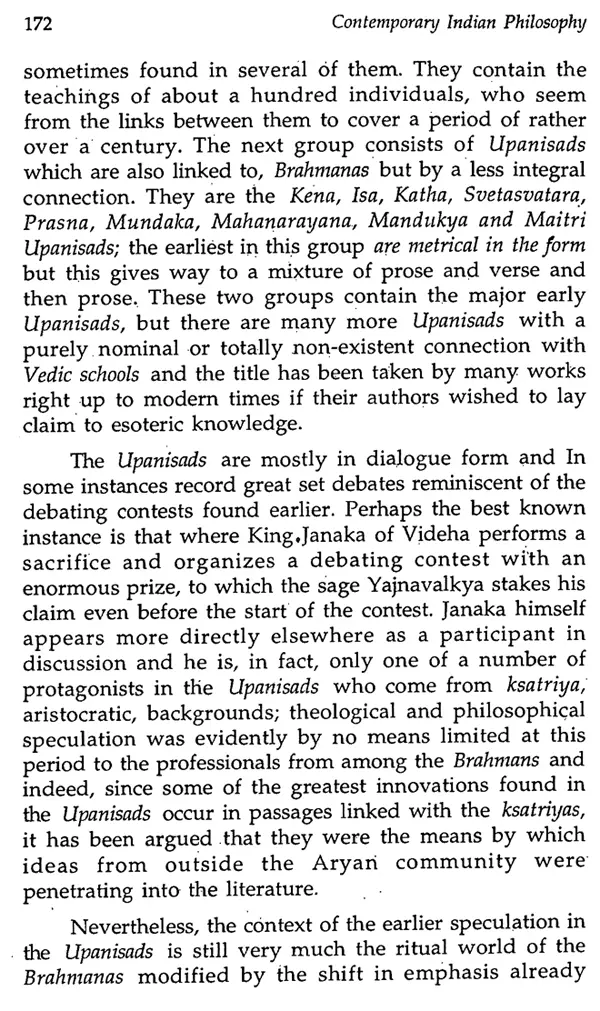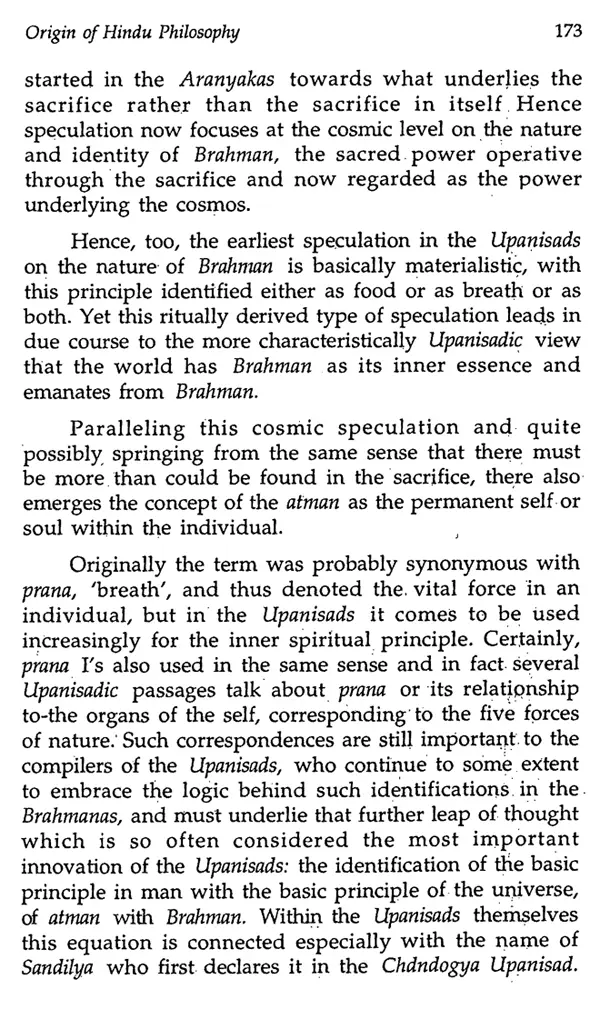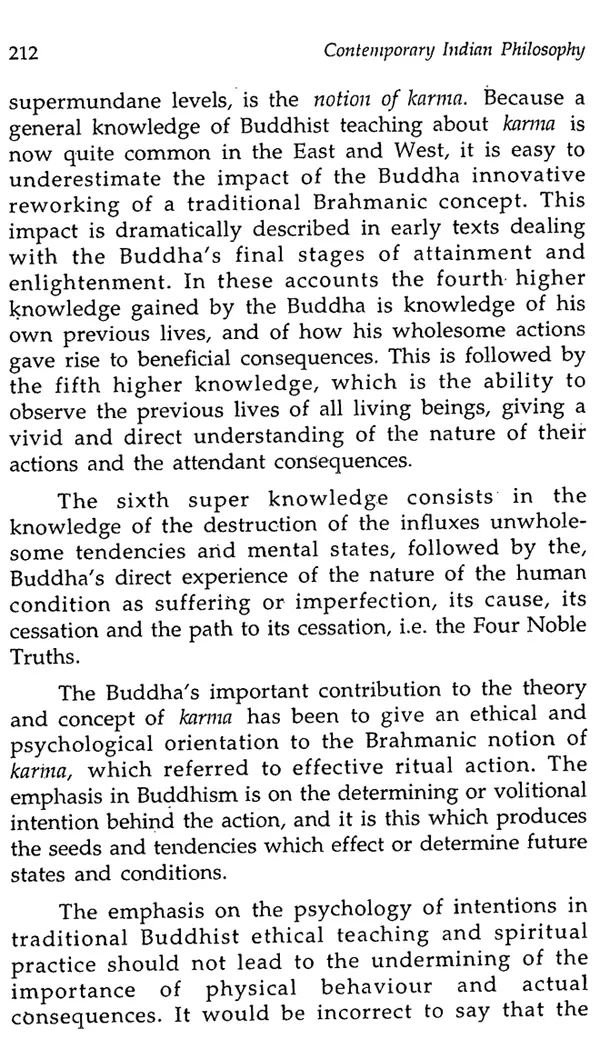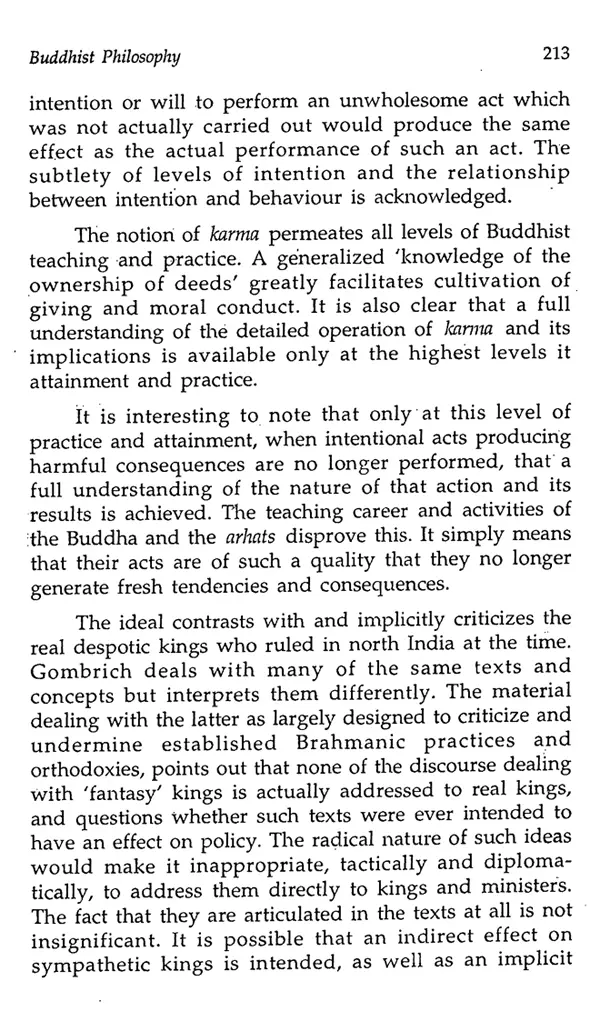
Contemporary Indian Philosophy
Book Specification
| Item Code: | UBA019 |
| Author: | Veena Tondon |
| Publisher: | Rajat Publications, Delhi |
| Language: | English |
| Edition: | 2022 |
| ISBN: | 9788187317883 |
| Pages: | 284 |
| Cover: | HARDCOVER |
| Other Details | 9.50 X 6.50 inch |
| Weight | 540 gm |
Book Description
Contemporary philosophical thinking in India is a peculiar combination of ancient thoughts with the current sociopolitical and economic problems of life. It is an expression of the eternal in the temporal, a reverberation of what is perennial of philosophic thoughts in the everchanging social order of mankind.
This book elaborately analyses the concepts, theories and trends in contemporary Indian philosophy. It also discusses the basic issues raised by orthodox and unorthodox systems like Buddhist, Jain, Nyaya Vaisesika, Sankhya, Purva Mimamsa Vedanta, and so on.
Veena Tandon, MBA has been associated with the management of computer oriented institution as well as marketing of computer education project in schools for introducing twenty first century educational system in the schools of our country. She has organised and participated in many short and long term management development programmes for helping the public as well as private sector organisations.
She has also been associated with many institutions in India and in rest of the world. In the capacity of consultant for helping these institutions in designing new programmes on personnel management, financial management, management philosophy and ethical studies.
Life is spiritual and eternal; our search is for the realisation of atman or spirit, which is one with brahman. Call it religious, call it philosophical or call it the message of spirituality in every living soul of the world, it is one and the same. The individual needs to realise his or her constant, unchanging eternal self which is not the self of the material world, but the underlying self or spiritual consciousness pining to be one with brahman. No wonder, then, that India is said to spiritualise the whole world. It is religious because here philosophy cannot be disassociated from religion, the way of knowledge from the way of life.
Indian philosophy in our century is the reflection of ancient philosophical thoughts in the changing times of society. It is an expression of the eternal in the temporal, a reverberation of what is perennial of philosophic thoughts in the ever changing social order of mankind. It implies quite a few factors which may not be apparent at first sight. Reality lies beyond the world of appearances; it is something constant and eternal. Man must turn himself in search of that reality. The search is eternal, true of mankind throughout the world and particularly true of the country in which it seems to have taken very deep root.
